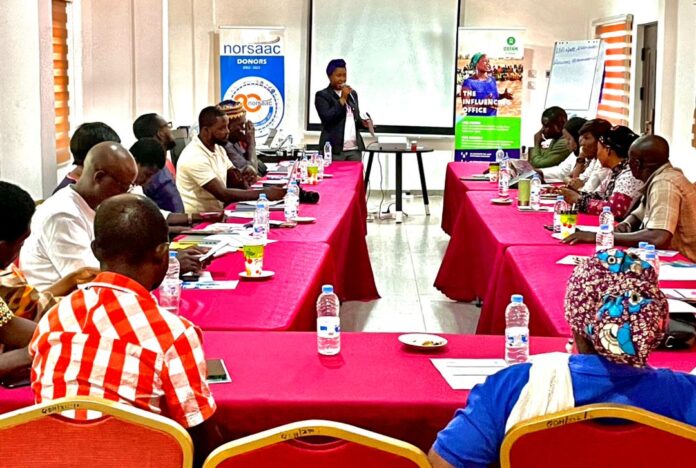Some civil society organisations (CSOs) in the five regions of the north have formed a coalition to ensure a well-coordinated advocacy on issues of Sexual and Gender-Based Violence (SGBV) in the area.
The coalition seeks to synergise the collective efforts of the CSOs to promote access to justice for victims of SGBV.
Members of the coalition include Songtaba, Savannah Women Integrated Development Agency, Regional Advisory Information and Network Systems, Centre for Research and Development Alternatives, Planned Parenthood Association of Ghana, Inspire to Act, Activista Ghana, and Bahass Foundation.
At an inception meeting in Tamale, organised by Norsaac with funding support from Oxfam Ghana, Hajia Hafsatu Sey Sumani, Head of Programmes, Policy and Influencing at Norsaac, said the coalition would co-create a process to bring together CSOs under a common platform to intensify awareness on the fight against SGBV.
Over the years, there had been series of coalitions between government agencies and other CSOs, which had not yielded much results, she said, adding that the new coalition was intended to change the narrative and help position the organisations to achieve their mandate.
The meeting was for the CSOs to share experiences, successes and challenges to enable them to leverage on the emerging trends of SGBV to maximise their campaigns.
The formation of the coalition is part of Norsaac’s Strengthening Advocacy on Inclusive Democracy in Ghana (SAID-Ghana), a four-year project, funded by Oxfam, which seeks to support women, young people and communities to live in a more equal, just, peaceful and a sustainable country.
Mr James Nachibu, the Programme Manager, SAID-Ghana, said as part of measures to track cases of SGBV, Norsaac, in partnership with the National Development Planning Commission (NDPC) and the various Regional Coordinating Councils, had come up with nine indicators to serve as a clear reporting mechanism for SGBV cases.
“As part of the processes, we are expected to receive reports from all the 55 MMDAs across all the five regions, which would be collated by the NDPC by June, this year,” he said.
The nine indicators include girls and women aged 15 – 49, who have undergone female genital mutilation, number of girls reached with child protection and SGBV information, number of SGBV cases referred to other services and followed up, and number of recorded cases of defilement.
The rest included number of reported cases of rape, physical violence, sexual assault, child abuse and as to weather or not legal frameworks are in place to promote, enforce and monitor equality and non-discrimination on the basis of sex.
Mr Haruna Osman, the Public Relations Officer, Bahass Foundation, who touched on the importance of effective collaboration amongst CSOs, recounted how they rescued four children from a mentally-ill woman in Wa as well as got a serial rapist jailed for defiling 13 under-aged girls.
He was optimistic that a more coordinated effort from all CSOs would drastically reduce cases of SGBV in the country.
Participants also proposed the engagement of survival advocates as a viable tool to lead in advocacy and called for clearly spelt out roles and functions of each CSO to ensure effectiveness.

